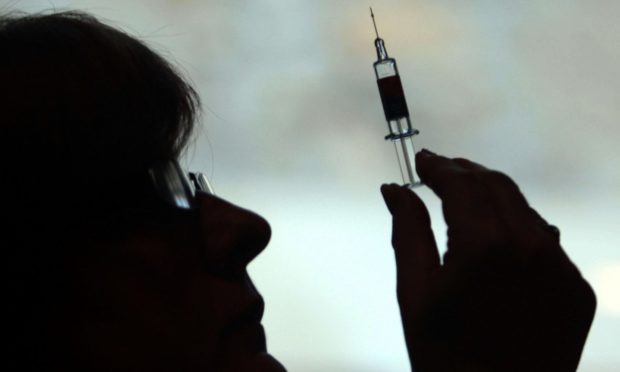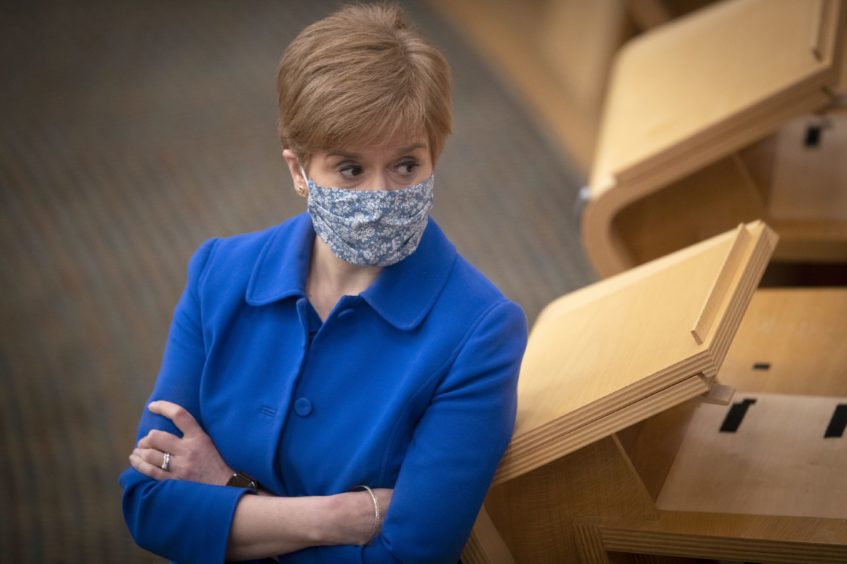Authorities in the north of Scotland have promised to show ‘no hesitation’ in deleting anti-vaccine coronavirus conspiracies if they are shared on their social media websites.
Councils across the north-east and Highlands have promised to police their public-facing online channels to avoid myths being spread and “threatening public safety”.
The Grampian and Highland health boards have also urged responsible social media use during the pandemic, warning their comments sections will be monitored.
Glasgow City Council hit out at the so-called ‘anti-vaxxers’ on Tuesday, promising to block those making “false and dangerous claims” which could “cost lives”.
The P&J has sought assurances from northern authorities that similarly robust action would be taken to ensure key public health information can be distilled from the sea of coronavirus fearmongering online.
Pledges to ensure mistruths and denial about the severity of virus will be struck down came only days after First Minister Nicola Sturgeon warned there was a “very real risk” conspiracy theorists could undermine the fight to get to grips with the pandemic.
Speaking at First Minister’s Questions last week, Ms Sturgeon said: “I think all of us should guard against buying into conspiracy theories on the internet or anywhere else, and on Covid-19 that is obviously particularly important.”
“It is important we are all very clear that when vaccines are given clearance to be used, then they are safe to use.”
NHS Highland said anti-vaccine commenters had not yet been “something that has given us cause for concern”, but reinforced its social media accounts were monitored.
Neighbouring Grampian has set out its standards for people engaging with social media posts, with a spokeswoman making it clear: “Our social media accounts are not public forums and we reserve the right to remove comments or block users.”
Aberdeen City Council is understood to be reviewing its social media policy – but as a matter of course, rather than because of fears of fake news and pandemic conspiracists.
A spokesman said: “Aberdeen City Council offers guidance on its social media channels for posting comments responsibly.”
The spread of fake information is understood not to be a matter of concern for Aberdeenshire and Moray local authorities – though both said they would take action if it arose.
A source at Moray Council added: “Should this develop into an issue we would not hesitate to block anyone posting views we considered to be against Public Health Scotland advice, and therefore posing a threat to public safety.
“We are mercifully relatively free of conspiracy theorists who use our platforms, but have blocked those that abuse, swear or promote misinformation and political messages on our social media.”
A Highland Council spokeswoman said the local authority would “support and promote national government and public health vaccination campaigns”, while highlighting its social media policy outlining the right to delete any posts going against its rules.
Readers of The P&J on Facebook were invited to share their thoughts on any potential jab and whether they would rush to be among the first to have it.
Among the most popular comments in the thread was one branding it “a very odd question to ask”.
The reader added: “The powers that be are not going to roll out something that is a danger to the public.
“We need this vaccine to survive this pandemic, so give it some support.”
Another added: “If it will help my high-risk family then jab me like a pin cushion.”
Question time: There’s been lots of debate around the new covid-19 vaccine. We want to hear from you – would you be happy to receive the vaccine?
Posted by The Press and Journal on Thursday, 12 November 2020
But not everyone was so quick to sign up for the inoculation, with others claiming they would leave it up to their immune systems to overcome the virus, that it was being rushed through clinical trials, and raising fears about long term effects.
Among the hundreds of comments however, many of the most common conspiracies from the internet were also shared.

